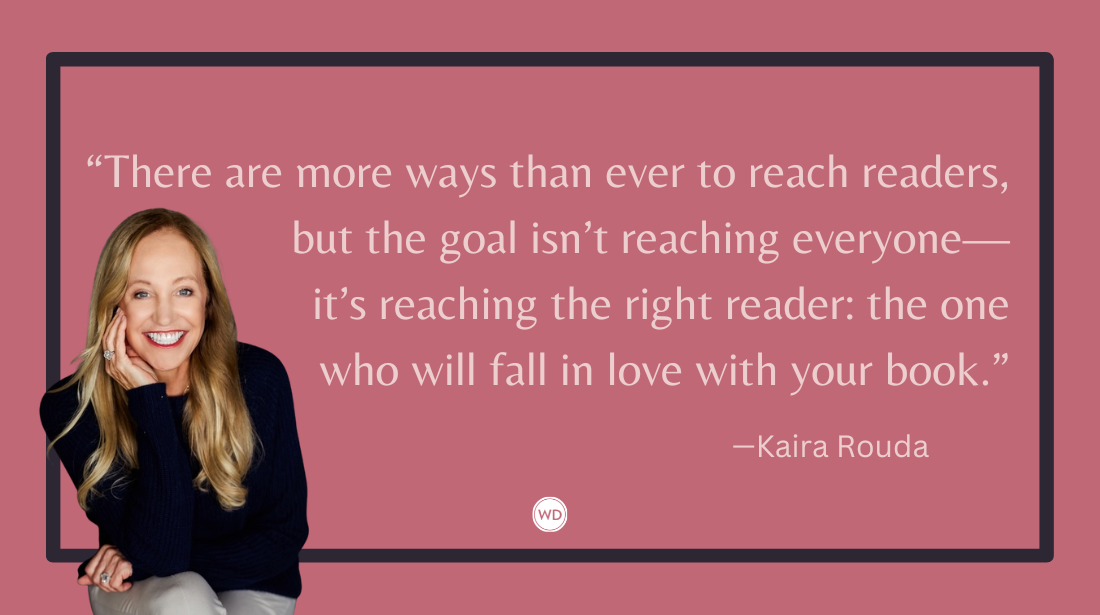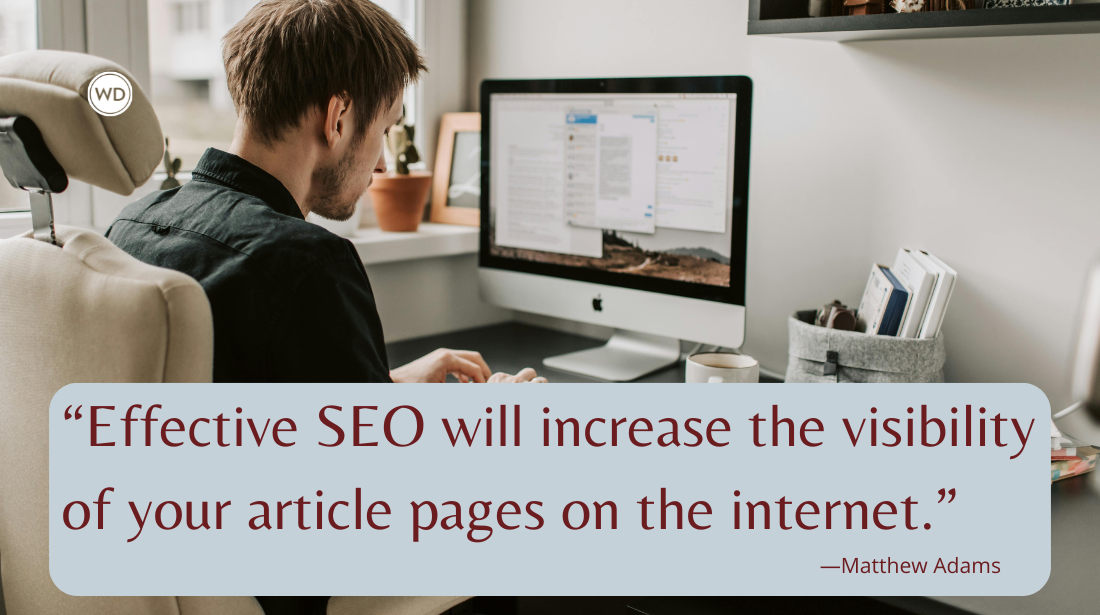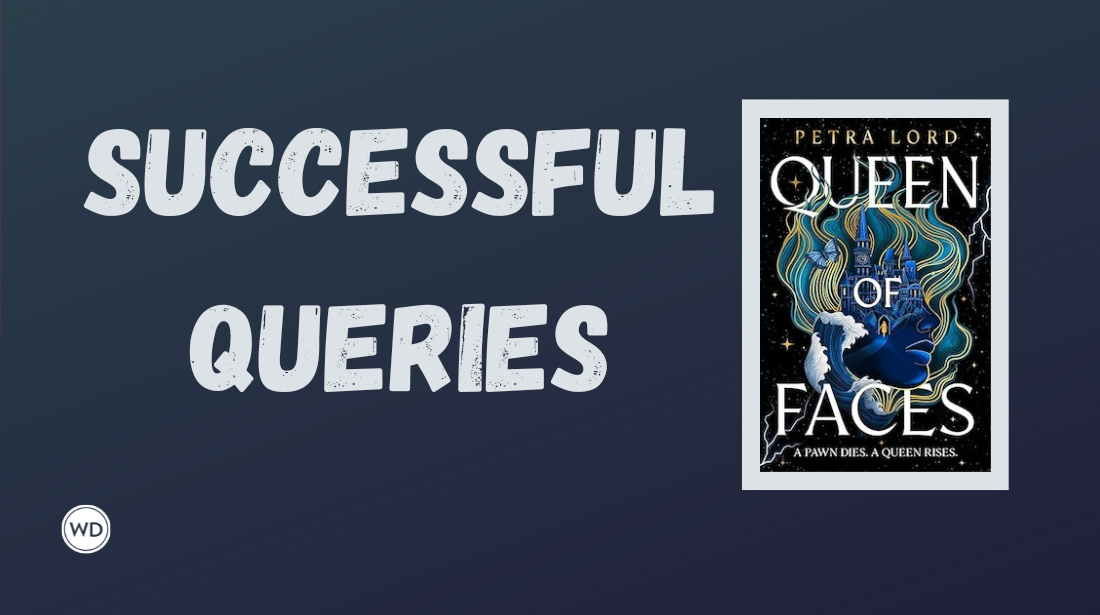Harlequin’s Self-Publishing Venture: Is It the Future of Publishing?
As I observed the writing community’s reaction to Harlequin Horizons last week, I felt incredible sympathy for the people at Harlequin. It appears they’ve been blind-sided by vitriolic outrage from…
As I observed the writing community's reaction to Harlequin Horizons last week, I felt incredible sympathy for the people at Harlequin. It appears they've been blind-sided by vitriolic outrage from all sides—unpublished writers, published authors, writers organizations, industry professionals.
For those who aren't familiar with the story yet, Harlequin announced a partnership with AuthorSolutions to create a self-publishing arm (or vanity publishing arm, depending on who you ask) called Harlequin Horizons. You can get a good feel for the story, and the gnashing of teeth (particularly in the comments!), on these blogs:
Jackie Kessler: Harlequin Horizons Versus RWA
Janet Reid (Agent): C'mon Harlequin, Don't Try to Blow Smoke
Rachelle Gardner (Agent): Self-Publishing Rant
The situation is still unfolding, but the Romance Writers of America have stated they are removing Harlequin from their list of recognized publishers, and other writers organizations may follow suit.
Frankly, I was caught blind-sided too. When Thomas Nelson announced pretty much the exact same venture with Author Solutions several weeks ago (called West Bow), I was expecting an uproar.
But in comparison to what's happening now, with Harlequin, you could say the response to Thomas Nelson was benevolent resignation. I'm still waiting for someone to logically explain to me why the two situations are different from each other (while not, in the process, denigrating Christian writers or the Christian market).
Harlequin's move has been called sleazy, unethical, fraudulent, greedy, and predatory. When they responded to the public outcry, and to the RWA specifically, part of their statement read:
It is disappointing that the RWA has not recognized that publishing models have and will continue to change. As a leading publisher of women's fiction in a rapidly changing environment, Harlequin's intention is to provide authors access to all publishing opportunities, traditional or otherwise.
People aren't having it. I think it made everyone even more angry.
I've been thinking about this issue since Friday. I go to bed thinking about it, I wake up thinking about it. I drive around thinking about it.
And I finally realized today why.
This move touches the deepest roots of what people believe traditional publishing is—and what it has been.
Harlequin's move is not shallow.
It is either progressive (even if some say executed poorly), or a path to ruin. How you interpret it depends on what you believe publishing fundamentally is, and how you can envision it or permit it to change.
It should be no secret to anyone that publishing today is undergoing immense transformation. But many writers don't see or understand what that means for them or how that change will manifest itself in a way that affects them.
In my time in the industry, I've always seen Harlequin as a progressive and innovative company. I don't think that has changed. But this latest move fundamentally questions what it means to be a publisher. And it's a fascinating question.
No doubt Harlequin leadership has read and considered what publishing futurist Mike Shatzkin has commented on many times. Here's a snippet from a blog post he wrote in June 2009:
At a conference on “Giving It Away” in Toronto at which I spoke two weeks ago, Carolyn Pittis of HarperCollins was explicit that the publisher buying content and making money by selling it was “one model”, and she pointed out that there is a “fee for services” model as well. The inference I drew was “that’s not what we’re doing today, but every option is on the table for tomorrow.” Why not? Don’t we have to believe that one of the exit strategies for the investors in Author Solutions, the biggest rollup of self-publishing service companies, might be to sell to one of the Big Six who, despairing of the future of their publishing model, tries to buy their way into a new one? …
A friend of mine in the financial business wrote a book 20 years ago and wanted to get an agent to sell it. He knew the advance would be low, but he also knew the book would add credibility to his business. He wanted it sold. An agent told him that the agency only handled books on which they thought the advance would be $25,000 or more, yielding a commission of $3,750 at the normal 15%. This friend told the agent, take the first $3,750. The agent took the book, sold it for $6,000, and everybody was happy. This kind of arrangement, as well as others where the agent actually charges a fee for helping an author manage self-publishing options, are going to have to become more common in the future. Let’s not be too judgmental about the pioneering agents who change the paradigm.
(my emphasis)
Harlequin is clearly at an advanced stage of considering how it will evolve—or devolve, considering on your perspective. But most writers and writers organizations (and publishers) have NOT grappled with these questions yet. Publishing has often been slowest to change and adapt of all industries.
Some argue Harlequin should've been better prepared and planned more strategically to respond to the criticisms that would arise. But when you've already moved on, like Harlequin—and are seeking solutions—it's tough to backtrack to the mindset of those people who are stunned, angry, and indignant, and can't even conceive of adaptation.
Harlequin has been brave to take this step. Some would say brave and immensely stupid, but let's give them the benefit of the doubt. Let's assume these people whom we thought so well of just a month ago, and praised to the hills (see Carina Press), haven't become evil minions and thoughtless corporate grunts overnight.
That's the big picture that concerns me most. You can stop reading here, because it's the most important part of what I wanted to say.
For those who want to read on, I'll address the lower-level concerns that have sparked the majority of criticisms now levied against Harlequin Horizons.
"Horizons is NOT a self-publishing option.
It's a VANITY publishing option."
This argument wants to differentiate between authors who pay a publishing service (e.g., Author Solutions) to produce a book, versus those who are truly DIY or independent and do not use any kind of middleman t
o produce the book.
I find this argument elitist, but it's still meaningful, for 3 key reasons:
1. If you contract with a publishing service like Author Solutions, aside from charging you an upfront fee (and we could argue all day whether the fees are exorbitant), they're also going to take a huge chunk of your royalties.
2. Despite what the marketing messages say, with a publishing service, you give up some control and uniqueness of product, depending on the service you're working with—or you have to pay extra fees to have the control/uniqueness you want.
3. You might sign a service contract you don't understand, or it could lock you into things that you regret later. (I tell writers to never sign contracts they don't fully understand, to make sure they are keeping all rights, and to have a straightforward way to terminate the contract.)
Writers who are truly independent in their self-publishing venture—at least when it concerns a physical product—often put out a better quality product. It's because they have a bigger investment on the line, and usually a stronger entrepreneurial spirit.
But let's face it. Not all writers/authors are entrepreneurs or do-it-yourselfers. The world of publishing is not something most people consider accessible. I've advised two former Procter & Gamble executives, who are masters of business. Why? When it came time for them to consider self-publishing, their first step was to find a consultant to sort through the mess and make sure they didn't make any mistakes—and remove the guesswork.
This is the boat most people are in. They need help. And publishing services are the first place that people stumble upon (have you done a Google search lately on "get published"?).
I can already hear you proclaiming, "If writers aren't dedicated and motivated enough to self-publish properly, then they shouldn't do it."
Or: "People should sweat and toil until finally their work is good enough to get accepted by a publisher." (That wait might last until the grave, considering how dramatically publishers are cutting their lists and acting more risk-averse than ever.)
I'd rather tell writers: Go ahead and do it, eyes wide open, and pay the fees, but don't complain that your book's not selling or it's not in stores (or insert common gripe here), because you didn't take the time to understand the value proposition of using a publishing service (which in some cases is arguably zero).
And, as Guy Gonzalez is fond of saying about all forms of self-publishing, it's a business decision. Let's take the moralizing out of it. There is a market demand for these services, which have made thousands of people very happy and satisfied. Which brings me to the next criticism of Horizons.
"The Horizon fees and/or royalty rates are exorbitant/predatory."
Horizons' deal is no better or worse than what you'd find with another publishing service. Undoubtedly the fees and rates are what the market can bear, optimized for volume, overhead, and profit.
Whenever you ask a middleman to do the work for you, you expect to pay more. Your savings comes from using your time, energy, and resource to do other things. Writers may be unable or unwilling to do the work required to "truly" self-publish, so it's their decision to make if it's worth the added expense to have someone else do the work.
We make these decisions everyday. Do I hire a financial advisor? Do I use a real estate agent? Do I hire a cleaning service? Do I buy the cut, washed veggies in a nice tray from Kroger, or do I go to the local market and spend half the money?
And the big daddy of criticisms:
"Harlequin is underhandedly and greedily profiting off its slush pile by referring unsuspecting writers to its self-publishing arm."
A few points to make here:
1. For any other company with an ancillary service to offer, this move would be considered smart marketing. In the writing world, this is considered predatory, unethical, and possibly fraudulent. I'm pretty sure it's not fraud, but I am sympathetic to claims that this could mislead writers in all kinds of ways (which is why clarity is needed—see discussion below about what could be better).
However, I doubt writers will only submit and only be rejected by Harlequin in their lifetimes, and I doubt Harlequin's mention of the self-publishing option will be revelatory and ground-breaking information. It would take a very sheltered writer to submit only to Harlequin, get rejected, consider her traditional publishing journey at an end, and immediately run to Horizons to take advantage of a tremendous opportunity.
2. A wide swath of writing community has always been averse to any entity (including Writer's Digest) profiting off of writers' dreams. It's almost a cliche at this point. But it's a strange criticism—as if writers' own artistic endeavors were meant to extract NO money!—and often it is writers/authors who (rightly so) yell loudest when they think their work is not being properly valued or paid for.
3. Ninety-nine percent of writers don't get their work published traditionally. This doesn't mean writers should self-publish or stop their efforts to get published & paid, but publishing services know that most writers are frustrated, disappointed, and want to get published anyway, even if they have to pay, even if they're not getting edited, even if it's a dead-end. Harlequin is mentioning an option nearly all writers have been confronted with, or will be confronted with.
The big and most interesting question for me
Is it possible, in the future, that a Horizons author could end up bringing in more revenue or more profit than a traditional Harlequin author? If so, I think it shows you just how much traditional publishing is broken. (I leave it to the reader to decide if this is the kind of change to pursue.)
OR: What if the revenue/profit from Horizons made it possible for Harlequin to better support its entire business, and they were able to do a better job with traditional authors? It appears to me Harlequin is setting up as many different tracks as possible for a potential author: traditional (for the very best, with most commercial promise), Carina Press (digital only, for almost-theres, or to test-market), and pay-to-play (Horizons). Why shouldn't Harlequin try to get some of the huge piles of money being spent on self-publishing to keep its traditional business going?
They are a business, and be as cynical as you like about their motives, but if it keeps editors and other talented people in jobs, I'm in favor of it.
What could be better (whether Horizons-related or not)
The marketing copy and description of any publishing service should be crystal clear about what the service CAN and CANNOT accomplish. Publishing services have a lot of feel-good language about achieving dreams/goals, and aren't upfront about the reality of how well self-published books perform, or what the "distribution" or "marketing" packages really mean or can really be valued at. Usually these are packages to be strictly avoided, or independently contracted.
A writer who conducts even the smallest bit of due diligence (e.g., via Writer Beware) will understand the significant limitations of these services. They should not be considered a stepping stone to traditional publishing success. It's just as hard to get traditionally published as before.
Yet I disagree with those who argue Horizons would actually HURT a writer's chances of future traditional publication. If you have a great follow-up manuscript that has tremendous commercial appeal, you WILL get takers
no matter the results of your self-pub effort—which frankly will be expected to fail. (That's why publishing services have to make their money upfront, not off book sales.)
But Horizons and other services are not HELPING you either, unless you use it to build an audience, test-market, or otherwise market/promote to some level of awareness/success. Many of these same goals can be achieved by using free digital services like Lulu, Smashwords, Amazon DTP, Scribd, and others. You don't need a physical or POD product to effectively self-publish, which is why I recommend writers use FREE methods before spending a dime.
--
This post might be the longest I've ever written—but appropriately so. This issue touches the heart of what publishing is—though I've probably just slathered myself with honey and stuck my hand in a dozen hornet's nests.
People like to say (and I've said too) that money should flow TO the writer, not AWAY from the writer.
But I can see a business model emerging where publishers work with authors in more diverse ways. What we've held to be sacred—that a writer should NEVER pay to publish—may change. Writers may pay agents, they may pay publishers. And it may turn out to be an accepted and ethical practice if done with transparency, honesty, and in the spirit of mutual benefit.
I'm not saying that Harlequin has got it right, at least not out of the gate. But it's an important step. I predict other publishers will follow, and the model will be improved and made more attractive. Just wait.
Jane Friedman is a full-time entrepreneur (since 2014) and has 20 years of experience in the publishing industry. She is the co-founder of The Hot Sheet, the essential publishing industry newsletter for authors, and is the former publisher of Writer’s Digest. In addition to being a columnist with Publishers Weekly and a professor with The Great Courses, Jane maintains an award-winning blog for writers at JaneFriedman.com. Jane’s newest book is The Business of Being a Writer (University of Chicago Press, 2018).









